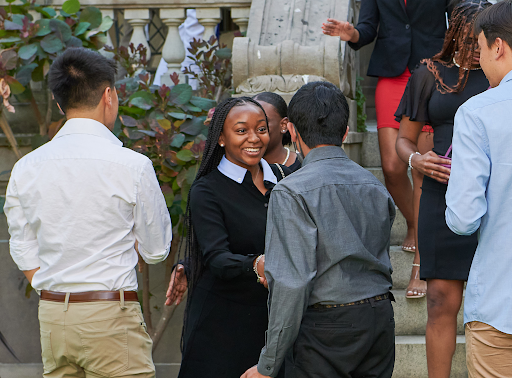UC Berkeley, Tuskegee University and UC Merced are creating an interdisciplinary, introductory computing and social science course under recently awarded grants from the National Science Foundation (NSF).
Students won’t need coding experience before they take this class, a common barrier to entry for students who want to try computer science for the first time in college. The class will also teach computing through a data lens, illustrating how it can help address societal issues.

“In California, there are many high schools that don't offer computing to their students,” said Deb Nolan, a co-principal investigator for the grant, about the need for this kind of course. “So when they would come in and take an introductory class like Data 8, which combines computing and statistics and problem-solving, it was a large challenge for them.”
“This is [also] an opportunity for students who might not see themselves as data scientists to see that, by learning computing, they can be a social scientist who works with data,” said Nolan, a special advisor to the associate provost and dean for UC Berkeley’s College of Computing, Data Science, and Society.
This is one of several initiatives by these institutions aimed at increasing the accessibility and inclusivity of undergraduate data science curriculums. This partnership bringing together a Historically Black University, a Hispanic-Serving Institution and the university with the nation’s top undergraduate data science program offers a unique opportunity to help solve this problem.
Diversifying data scientists could expand the views represented in the development of, and problems solved by, technology that has the power to shape and change our world. The NSF Division of Computer and Network Systems grant, which started June 1, provides the three universities $1.8 million over the next three years towards the development of this course.
The grant’s principal investigators include Lisa Yan, David Harding and Nolan from Berkeley; Yasmeen Rawajfih, Vivian Carter, Fan Wu, Mandoye Ndoye and Mohammed Qazi from Tuskegee; and Suzanne Sindi, Roummel Marcia and Juan Meza from Merced.
Broadening perspectives
Starting this month at the National Workshop on Data Science Education, the project team will brainstorm, develop and pilot teaching individual modules or parts of the course. The second year the team will assess what was effective, put together the full class and develop related materials such as a free online textbook.
“Our hope is that students who are grappling with a data science problem can hear perspectives from different communities other than their own, and that this will broaden their perspectives when they’re solving problems and thinking about who will be impacted by their data science solution,” said Nolan.
The third year, the three institutions will jointly teach the hybrid course. The virtual sessions will include students from all three institutions together, while the in-person seminars will be shaped for students from each university.
“An important part of data science is working with data in the context of the problem that you're solving,” Nolan said. “Our hope is that students who are grappling with a data science problem can hear perspectives from different communities other than their own, and that this will broaden their perspectives when they’re solving problems and thinking about who will be impacted by their data science solution.”
The team is also currently working on parts of the course with stakeholders from community colleges and plans to work with high school teachers in the future. This means the class will also be shaped for those audiences and could be used to further increase access to data science after the grant ends.
